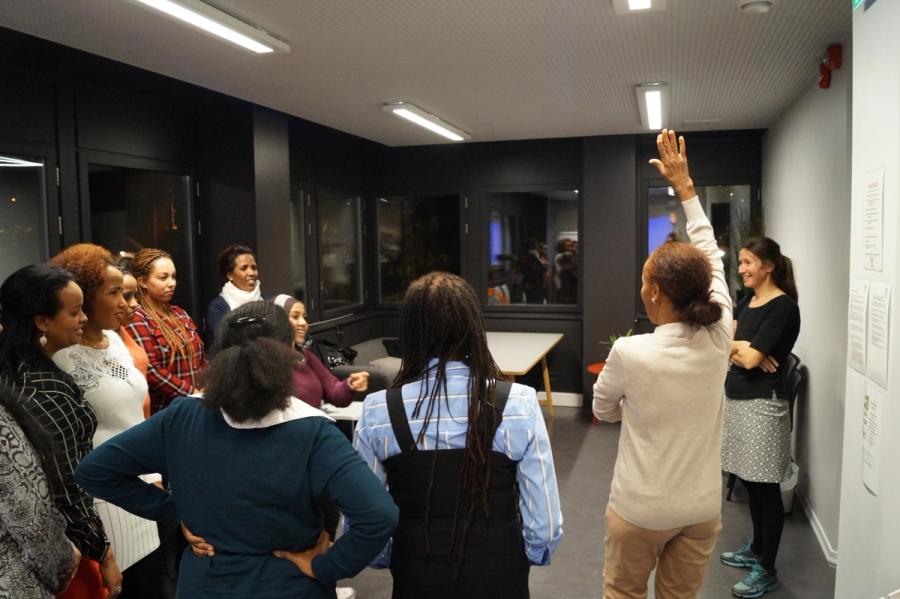The dialogue exercise
When was the last time you changed your mind? In meeting people with opinions different from our own, we are challenged to think and learn something new.
Quick facts




Activity goals
- Understand why freedom of expression is essential for forming opinions and obtain new knowledge.
- Understand why it is important to respect other peoples right to speak their minds.

Preparations
A list of 5-8 statements the group are to discuss. The statements must be clearly formulated, so they are easy to understand. Proposals:
- Summer is better than winter
- The right to vote should be lowered to 16 years of age
- Freedom of speech should never be restricted
- Women and girls can manage anything
- The police must be allowed to use torture if it can prevent terrorism
- Marriage between persons from different cultures is not recommended
- The police and judges should be allowed to wear visible religious symbols
Instructions
- The facilitator places the big papers with YES and NO written on them on the floor on each side of the room. In the middle is the DON´T KNOW paper.
- The participants are asked to stand on the floor. The facilitator explains that he/she will read out some statements. Those who agree with the statement go to the YES-side of the room. Those who do not of the room agree, go to the NO-side of the room, and those who are unsure, stand in the middle by the DON´T KNOW paper.
- The facilitator reads out the first statement, whereupon the participants reflect for a minute or so and then place themselves in the room according to their opinions. The facilitator opens for reflection.
- The floor should first be given to one or two in the smallest group to explain their positions. Afterwards the others, one by one, can argue for their stances. All sides must be given the opportunity to explain, including those who have placed themselves as “don’t know”. The facilitator must tell the participants that they can change positions at any time during the discussion. There is no aim to reach agreement.
NB: It is important that the facilitator does not convey his/her own opinions about the statements. The participants are the ones who are to discuss. The facilitator role must be neutral. - When a participant changes his/her position, the facilitator should ask why.
- Discussions about each statement should last as long as participants find it interesting (often between 5-10 minutes).
- A normal dialogue exercise will last for about 45 minutes, during which time four to six statements will be discussed. If the facilitator is unsure whether the group wants to continue, he/she can present this statement: “We end this exercise now”.
- When the discussions are finished, the facilitator invites the participants to reflect.
Reflection
- What do you think about the exercise?
- Did you learn something new?
- Did you manage to “talk” someone over to your side?
- Was it difficult to be alone, or among the few, on one side?
- Do we influence each other through dialogue and discussion? Why?
- Do we have a need to express our opinions? Why?
- What are the consequences when we do not speak our minds?
- Is dialogue a requirement for forming better societies? Why?
Debriefing
Through discussion and dialogue we learn from each other, about each other and about ourselves. Dialogue makes us reflect about the world and the society at large and gives us new knowledge. Just as I am influenced by others, I myself, by using my freedom of speech, can influence others. In our daily lives, dialogue is the tool we use to exchange knowledge and experiences and form our opinions.
A fruitful dialogue requires freedom of expression. We should all be able to speak our minds and listen to others. We should not be afraid to listen to others speak. In fact, when people have ideas far removed from our own, we often learn more. If we do not like or believe what they say, we will just be more convinced about our own position. And if we do find their thoughts interesting, we might change our minds. In both circumstances, we have become wiser.
When was the last time you changed your mind?
Freedom of expression is a human right which is protected in several international human rights treaties.


